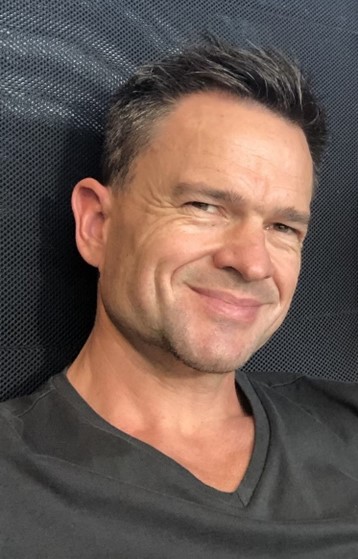
Master
Christian theologies in
The Ecumenical Perspective
Short info about the course of study
| Restricted admission | Standard period of study | Start of studies |
| no | 4 semesters 8 semesters (part-time) | Summer and winter semester |
Authorisation procedure
The program is admission-free, but an application is required.
Application deadline
01 October to 15 March Application possible for the summer semester
completion
Master of Arts
Further information about the degree programme
Language of instruction
German
The course of study
The Master's program Christian Theologies in Ecumenical Perspective familiarizes you with in-depth aspects of Christian theologies and their influences and imprints on and through European culture. An interdenominational point of view is taken in the course of study. Topics are thus considered from the perspectives of both Roman Catholic and Protestant theological traditions.
In changing perspectives, you will recognize differences and similarities between the two confessions and learn to understand the denominational imprints and their social effects in greater depth. Confessional differences remain visible, but are discussed critically and constructively.

5 reasons to study
Christian theologies in Siegen
✓ Evangelical and Catholic theology first-hand and in close exchange
✓ family atmosphere with the possibility of close contact with the lecturers
✓ a clear view of the situation of religion in a secular environment
✓ Possibility to design your studies according to your own interests
✓ diverse combinations of theology with other disciplines in the degree program
Career prospects
With the Master Christian Theologies you qualify yourself in ecumenical perspective for fields of activity in the ecclesiastical field, e.g. in education and development work or in interdenominational and interreligious projects and jobs. In particular, the churches in Germany are currently experiencing a lack of theologically educated staff, which you can use as an opportunity with the completion of your studies.

This is what Eduard Eisner says about his course of study:
“To study theology? In Siegen? All right, all right!’
Read more
The location close to home and the newly launched Master's degree programme: Christian theologies from an ecumenical perspective. These are just two of many other points that made me decide to study theology in Siegen.
The campuses range from historical to state-of-the-art. That's what makes the University of Siegen so special to me.
Then there is another point. Which, in my opinion, should not be underestimated:
The professors and teachers are not only interested in the pulse of current science and its mediation, as they are in many other universities. In Siegen they are also accessible after the lecture. Not only as spiritual respecters, but also as human beings. As a student, you are not a mere (matriculation) number among many. One is seen.
They know each other. They meet. Greetings.
In my opinion, the bridge between pure knowledge transfer and co-humanity is being built here. To accomplish this balancing act, the Faculty of Philosophy succeeds very excellently across disciplines and denominations.
In the Master CTiöP, it is possible to select and attend events from both the Protestant and Catholic denominations.
Looking beyond one's own horizon not only opens up new horizons of knowledge at this point, but also significantly expands the possibilities of later employment.
From my point of view, I can make a clear recommendation for the degree program at Faculty I in Siegen. Knowledge transfer close to the time. Close to people.
Admission requirements
Proof of a first professional qualification of a course of study on which this Master's programme is based. This includes:
- Bachelor's degree in a combination degree program with the core subject Christian theologies in an ecumenical perspective or
- a Bachelor's degree in a teaching degree program with the subject of Catholic or Protestant religious teaching or
- a comparable degree.
The current examination regulations always apply.
Study organisation
Subject examination regulations including course plans and module descriptions
Framework examination regulations (RPO-M) and the general subject-specific regulations of the subject examination regulations (PHIL-FPO-M) define the general framework conditions for studying in Siegen and at the Faculty of Arts and Humanities.
In addition, subject examination regulations of the individual (sub-)courses (FPOs) determine the basic structures of a (sub-)course (e.g. entry requirements and content to be studied). The subject examination regulations are accompanied by course plans, which represent the recommended exemplary course of study in the individual subjects, as well as module descriptions (content information on modules).
For students, the current version of an FPO automatically applies when enrolling in the first semester.

Advice and contact
Make an appointment now at:
info.studienberatung@zsb.uni-siegen.de
or by phone at: 0271 740-2712
(Mon – Thu: 9 a.m. - 4 p.m. / Fri: 9 a.m. – 12 noon)